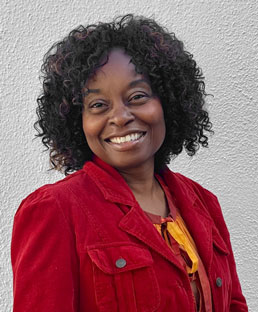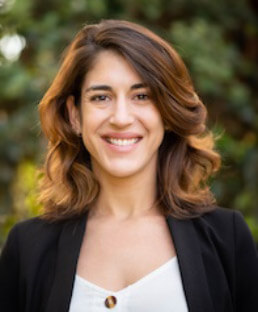Baby Blues vs Postpartum Depression
Very often the term “baby blues” is used interchangeably with Postpartum Depression (PPD). Indeed, the symptoms of both of these terms are extremely similar and can overlap; however, there is a difference between the two. PPD is more persistent and of greater severity than baby blues. The process of creating a human, birthing it, feeding it, and caring for it all from a single source– your body, is simply INCREDIBLE! As one can imagine, a mother’s body is going to have some chemical ups and downs while trying to recover and recuperate. Each mother is an individual and her brain and body’s ability to cope with the extraneous new labors of motherhood is also individual.
For most, baby blues include feelings of unhappiness, worrying, fatigue, inadequacy, and much more. These feelings fluctuate, lasting for a few weeks, but eventually resolve on it’s own. Many experience something more severe, PPD. A mother with PPD may also have thoughts of harming self or baby, struggles to bond with baby, avoiding family and friends, crying more than usual, rapid weight loss or gain, and many other symptoms. Mothers experiencing baby blues can also experience these symptoms; however, with PPD these issues do not resolve on it’s own. Symptoms may also begin to interfere with a mother’s ability to care for herself and/ or her baby.
How To Overcome Baby Blues and PPD
Mothers struggling with PPD should visit with a physician AND a licensed mental health professional. Antidepressant medicine and therapy, such as Cognitive-Behavioral Therapy, can be effective in treating PPD.
In addition, there is great power in connecting with others in similar situations and multiple ways to do so:
- Group therapy- whether led by a professional or by members of the group is an opportunity to find empathy, learn from peers, and an organized formal time set aside for a specific purpose.
- Mothers’ group- which is less formal than group therapy and may not have a set agenda; but, is a social way to engage with other mothers. Local churches sometimes have mothers’ group or you could create your own. If wanting to meet more mothers. attending “story time” at your local library or bookstore is an opportune place to meet other mothers. Some mothers group have girls night, meet at a playground with their children, exercise together, or get together for brunch. The options are limitless.
- Social Media- there are many social media groups on platforms such as Facebook. Some groups are specific to religion, location, multiples (such as twins, triplets, and more), hobby, or diagnosis. Some groups are anonymous, private, public, regulated strictly, hardly regulated at all.
Ultimately, it is important that all Mothers find a course of support that works for them and they feel comfortable with. Motherhood can be beastly at times, but also fuzzy, warm, and loving. No need to make it more hectic than it already is, so find a doctor you feel comfortable with, a therapist you jive with, and a group that uplifts you. If any gives additional stress and seems to worsen your situation, move on to the next, until the shoe fits.
Contact Crownview Medical Group to get in touch with a trained medical professional who can provide the support you need, helping you live an optimum life.
https://www.nimh.nih.gov/health/publications/postpartum-depression-facts/index.shtml

Dr. Melden earned his Doctorate in Osteopathic Medicine at Philadelphia College Osteopathic Medicine and went to USC Presbyterian Hospital for his residency in Family Medicine. He then completed his Psychiatric residency at the University of California, Irvine and went to UCSD Geropsychiatry pursuing a fellowship. Dr. Melden has over 14 years of experience as a clinician specializing in treating child and adolescent, adult and geriatric clients. He has devoted his life to psychiatry in a variety of different treatment settings including in- patient and out-patient environments. He specializes in the psychiatric evaluation, complementary therapy approaches, and medical management of individuals suffering from mental illness. Currently, he maintains a private practice with Crownview Medical Group in Coronado and Carlsbad, California where he is CEO/President.


 Myriame Nicolas, PMHNP-BC
Myriame Nicolas, PMHNP-BC
 Charlie Perez, PMHNP-BC
Charlie Perez, PMHNP-BC Kimberly Umansky, FNP-C
Kimberly Umansky, FNP-C Joanne Talbot Miller, M.A., LMFT
Joanne Talbot Miller, M.A., LMFT J. Heather Fitzpatrick, LCSW
J. Heather Fitzpatrick, LCSW Agata Nowakowska
Agata Nowakowska Brianna Meacham
Brianna Meacham Maha Moses, PhD
Maha Moses, PhD Rebecca McKnight, PsyD
Rebecca McKnight, PsyD Tiffany Holm N.P.
Tiffany Holm N.P. Dede Echitey, PMHNP-BC
Dede Echitey, PMHNP-BC Apneet Mann, FNP-C
Apneet Mann, FNP-C Rachael Hueftle, NP
Rachael Hueftle, NP Kelvin Poon, MSN, PMHNP-BC
Kelvin Poon, MSN, PMHNP-BC



